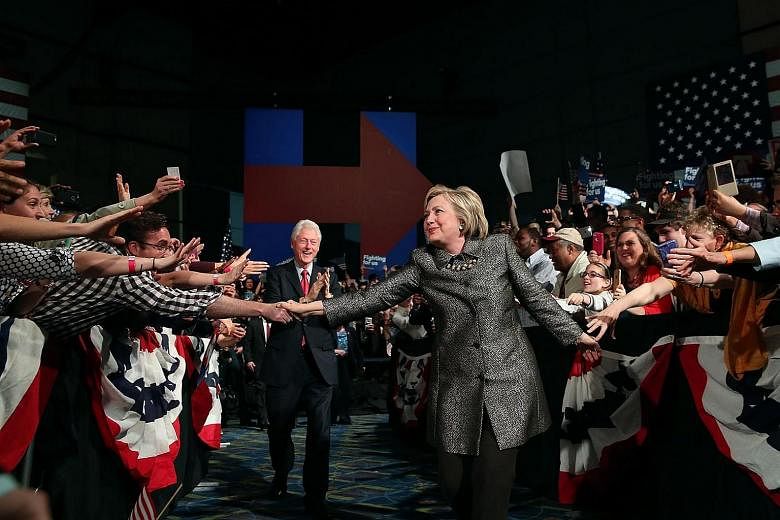WASHINGTON (AFP) - Thousands of demonstrators are hoping to make their voices heard next month during the Republican and Democratic party conventions.
But they will be kept at bay with the help of a nearly US$100 million (S$134 million) security budget for the events.
In downtown Cleveland, where Republican delegates are set to gather from July 18 to 21 to nominate Donald Trump as the party's candidate in November's general election, some US$50 million of federal funds will pay for miles of metal barriers and well-equipped police.
Only delegates, guests and journalists will be allowed inside the holiest of holies, a perimeter around the Quicken Loans Arena to be secured by the Secret Service.
The city has mapped a vast area of 8.5 sq km where protests will be prohibited except in designated places.
Anti-racism activists, environmentalists and many other groups opposed to Trump will gather there to hold rallies and marches.
Echoing complaints during previous conventions, they say the designated areas are too remote. The authorities have authorised a single route for marches that passes almost 300m away from the convention venue and ends in an industrial zone.
"We don't think that the first and the fourth amendments have to be thrown out the window in order to be secure," said Christine Link, director of the Ohio branch of the American Civil Liberties Union rights group, referring to the right to freedom of speech and protection against unreasonable searches.
The long list of items to be prohibited inside the urban exclusion zone includes knives, air guns, drones, aerosol cans, coolers, large bags, even tennis balls.
However, handguns will be allowed in the outer event zone, in accordance with state law. Republican activists had pressed for firearms to also be allowed in the inner secure zone, but the Secret Service, which regulates that area, said guns won't be allowed there.
Gun rights have long been a hot-button issue for conservative Republicans, who cite the US Constitution's Second Amendment that guarantees the right to bear arms.
With or without permission, demonstrators across the country will converge on Cleveland to protest Trump's candidacy.
Among them, anti-racism activist Susan Schnur - who is helping coordinate an unsanctioned march - says she is prepared for anything.
"If the young people are going to fight, I'll support them all the way," she said.
"If I get swept up (by police), so be it. I'm retired, I'll have my meds with me and I'm all set."
For their part, Democratic delegates meeting several days later in Philadelphia's Wells Fargo Center from July 25 to 28 are expected to face hordes of Bernie Sanders supporters.
A day before the convention kicks off, a march of environmentalists and opponents of hydraulic fracturing, or fracking, is set to take place along with a pro-Sanders rally.
The Vermont senator, who trails presumptive Democratic nominee Hillary Clinton - but technically remains in the race - may even participate.
"It's a possibility, but nothing has ever been firmed up on his schedule this far in advance," Sanders spokesman Michael Briggs said in an email.
As in Cleveland, a police force of more than 6,100 officers will get back-up help from local police.
The federal government will spend US$43 million on the security force and other expenses, such as new equipment, including the purchase of an armored vehicle, CBS reported.
Although the city has issued permits to some demonstrators, others, including Cheri Honkala of the Poor People's Economic Human Rights Campaign, have had their applications rejected.
She says she will defy the ban.
"Most of the people in the march are not happy that Hillary Clinton is going to be the nominee for president," she said.
In a bid to avoid the kind of mass arrests that have made headlines during previous conventions, police will impose US$100 fines on protesters who refuse orders to disperse or otherwise defy the authorities before arresting them.
The city may also reopen its shuttered Holmesburg Prison if necessary.
However, officials say Philadelphia has successfully managed much larger events in the past, including Pope Francis's visit in September.
"We obviously do have to prepare for that worst case scenario," mayoral spokeswoman Lauren Hitt said, "even if we're taking all the steps necessary to assure that worst case scenario doesn't occur."

